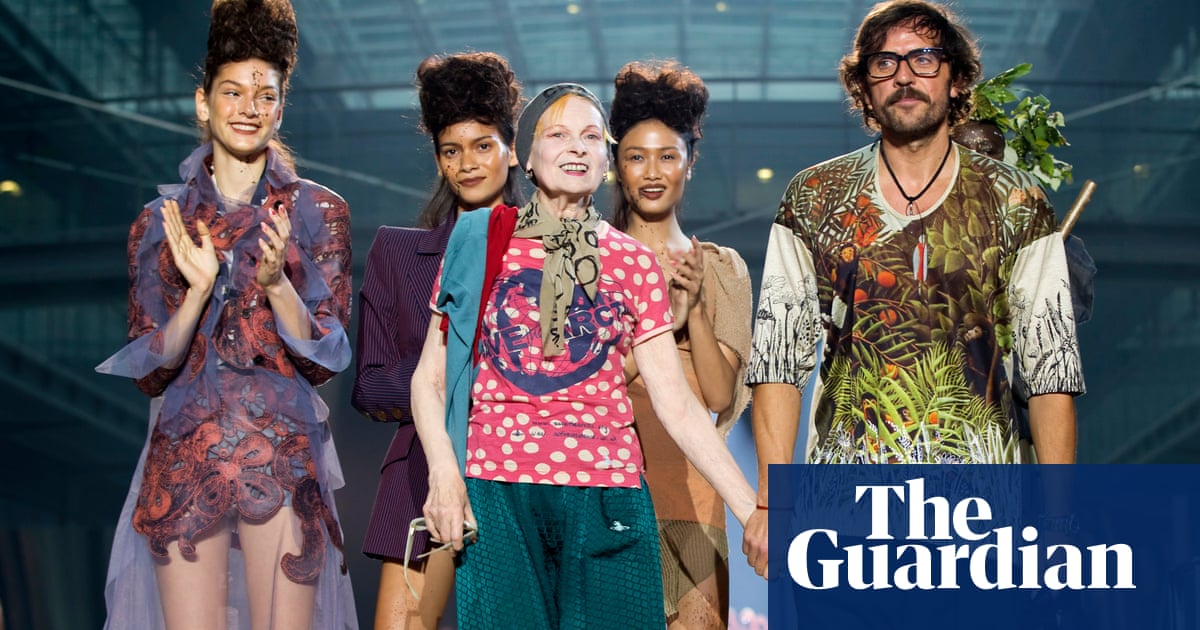
The UK trade secretary, Kemi Badenoch, has been accused of quietly killing off a funding stream for small businesses that had helped fashion brands such as Paul Smith and Vivienne Westwood launch their products at global trade fairs.
Specific support has been provided by the government since 2006 to small and medium-sized companies wanting to showcase their products at overseas exhibitions, but after years of budget cuts the initiative has been shelved.
The decision has been negatively compared with the policy of the German federal government, which continues to provide up to €7,500 (£6,572) to small businesses seeking to take part in international trade fairs.
According to recent figures, Germany is third in the league table of the world’s biggest exporting countries, behind China and the US, with the UK sitting at 15th.
The founding of the Tradeshow Access Programme (TAP) for small and medium-sized businesses was backed by the then chancellor, Gordon Brown, in 2006 as a successor to the Support for Exhibitions and Seminars Abroad programme (SESA), which had a broader remit to support companies of all sizes.
At its height in 2014, a total of £16.2m was spent helping 9,427 businesses. It was used by designers including Paul Smith, Vivienne Westwood and Orla Kiely to launch their brands at fashion shows in New York, Shanghai, Paris, Milan, Berlin and Florence.
After an outcry in 2021, when the then trade secretary, Liz Truss, announced plans to scrap the funding stream, a newly badged UK Tradeshow Programme was formed. It offered “enhanced” support of up to £4,000 to companies but the level of total spending has never recovered, according to government figures.
From November 2021 up to the end of March 2022 – only two specific small businesses succeeded in gaining funding under the programme, at a cost of £13,600, out of a total spend of £739,161.74 on UKTP as a whole. The government did not clarify as to how the rest of the money was spent.
The UK Tradeshow Programme had a total allocated budget of £904,512.00 in 2022-23 with actual spend totalling £347,755.67, providing 56 exhibitors and 35 attenders with support.
The government said the new scheme had been a pilot but that it had now closed and that options for future support were being considered.
William Bain, the head of trade policy at the British Chamber of Commerce, said: “Business feedback from across the UK is that access to shows and fairs for new, small or growing exporters needs to be enhanced by government, not pared back.”
”
after newsletter promotion
The shadow trade minister, Gareth Thomas, said the Conservatives had “thrown away any claim to be the party of British business” by shutting down the funding stream.
He said: “The Tradeshow Access Programme was once the jewel in the crown of government support for British exporters
… but now, thanks to Kemi Badenoch, that jewel in the crown has been casually thrown in the bin, and a programme that used to provide vital support to thousands of small firms each year has been scrapped without so much as a ministerial statement.”
A Department of Business and Trade spokesperson said the value of UK exports reached over £400bn for the first time last year.
The spokesperson said: “To get best value for taxpayers we have made sure our finances are targeted at the most efficient methods of support, including dozens of global trade missions and our Export Support Service, which has handled more than 11,000 inquiries since its launch.
“UK exports are higher than pre-Covid levels – even adjusting for inflation – and a record-breaking 3,225 businesses from across the country took part in International Trade Week this month, which offered 180 tailored events and expert advice to export around the world.”
